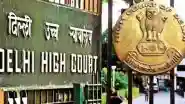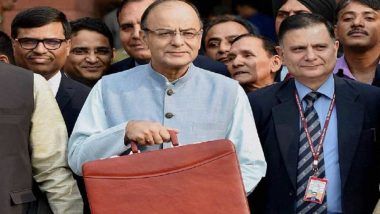New Delhi, Jan 30: As hinted by the Economic Survey 2018, the Narendra Modi government -- which will be presenting its last full-year Budget for the current term -- is expected to deviate to an extent from its target of tightening the fiscal deficit.
What to expect from Arun Jaitley's pandora box this year?
Considering the spree of state elections to come this year, ahead of the 2019 Lok Sabha polls, the Budget 2018-19 is likely to increase public expenditure, in a bid to boost Prime Minister Modi's popularity among the people.
What the salaried class expects
- Amendments in Section 80C of the Income Tax Act to allow more deductions and incentivise the taxpayers.
- A long-pending demand of the salaries class is an increase in the amount of tax deductions allowed on medical insurance premiums. At present, it is capped at Rs 25,000.
- Also, those enrolled under the National Pensions Scheme have appealed the Finance Minister to widen their tax reduction net from the incumbent Rs 50,000 to Rs 75,000.
- Employed parents expect the government to announce an additional tax reduction measure, via the expense incurred on children's education. This should be distinguished from the Children Education Allowance, said a group of respondents who spoke to the Deloitte Personal Tax Survey 2018.
- Home buyers are also expecting an increasing in the tax rebate net. Respondents of the Deloitte Personal Tax Survey 2018 said the deductions on housing loan interest should be raised to Rs 3,50,000 from the incumbent Rs 2,00,000.
What the agricultural sector expects
- Farmers are a core constituency targeted through the Budget, since the past five decades, ever since former PM Lal Bahadur Shastri gave the call of 'Jai Jawan, Jai Kisan' in the Parliament.
- The Modi government, which analysts say is running out of time to reach out to the agrarian community before the next general elections, could roll-out some sops and lucrative schemes to grab their attention.
- Reduction in fertilizer costs, via increased subsidy, could be on the charts.
- Increased allocation of funds for crop insurance schemes.
- Enhanced expenditure to develop micro-irrigation system, using canals, especially in the drought prone districts.
- Subsidies for building cold storage which would allow farmers to store perishable products.
What the corporate sector expects
- A further reduction in corporate tax rate from 30 per cent to 25 per cent.
- A drop in the Alternative Tax rate from 18.5 to 15 per cent.
- To boost infrastructure, real estate and construction bigwigs are eyeing an increase in road expenditure by 10-15 per cent.
- The telecom sector was vocal in its demand seeking a cut in GST rate from 18 per cent to 12 per cent.
- The automobile sector is expecting a cut from the incumbent GST rate of 12 per cent on electric vehicles -- a new technology which is also eco-friendly.
- The real estate sector is expecting a cut in the GST rate for under-construction projects, whose flats are currently taxed at 12 per cent on sale.
Drop in fuel prices?
Motorists across metro cities are yearning for a drop in the sky-rocketing prices of petrol and diesel. While the option of bringing petroleum sector under GST -- which experts say is bound to happen in the future -- remains unlikely for now. However, FM Jaitley is expected to provide some relief by slashing the rate of excise duty. The last such measure came in October, when the Centre dropped the excise duty by Rs 2 per litre.
(The above story first appeared on LatestLY on Jan 30, 2018 11:39 PM IST. For more news and updates on politics, world, sports, entertainment and lifestyle, log on to our website latestly.com).













 Quickly
Quickly












